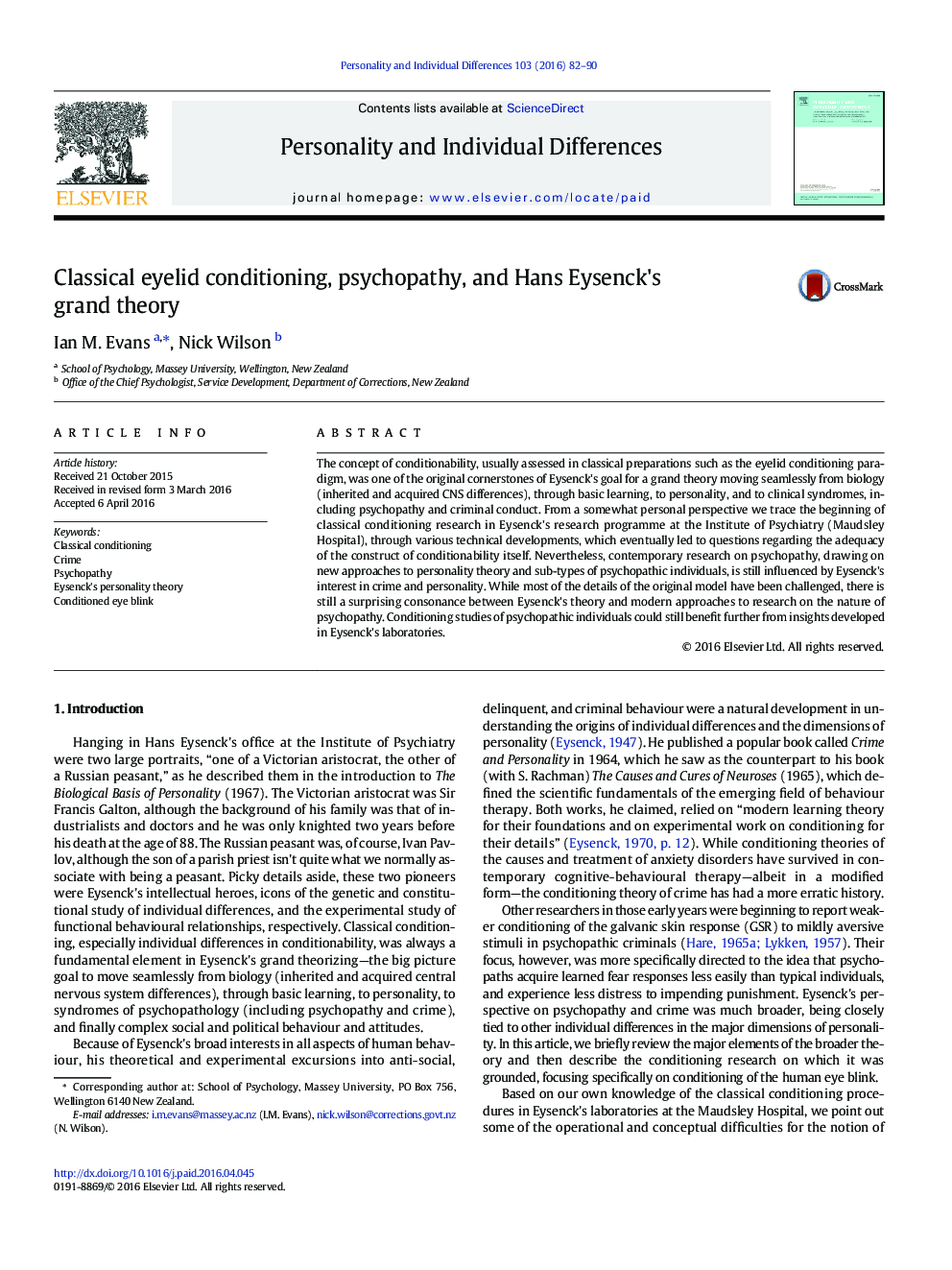| Article ID | Journal | Published Year | Pages | File Type |
|---|---|---|---|---|
| 5036251 | Personality and Individual Differences | 2016 | 9 Pages |
Abstract
The concept of conditionability, usually assessed in classical preparations such as the eyelid conditioning paradigm, was one of the original cornerstones of Eysenck's goal for a grand theory moving seamlessly from biology (inherited and acquired CNS differences), through basic learning, to personality, and to clinical syndromes, including psychopathy and criminal conduct. From a somewhat personal perspective we trace the beginning of classical conditioning research in Eysenck's research programme at the Institute of Psychiatry (Maudsley Hospital), through various technical developments, which eventually led to questions regarding the adequacy of the construct of conditionability itself. Nevertheless, contemporary research on psychopathy, drawing on new approaches to personality theory and sub-types of psychopathic individuals, is still influenced by Eysenck's interest in crime and personality. While most of the details of the original model have been challenged, there is still a surprising consonance between Eysenck's theory and modern approaches to research on the nature of psychopathy. Conditioning studies of psychopathic individuals could still benefit further from insights developed in Eysenck's laboratories.
Related Topics
Life Sciences
Neuroscience
Behavioral Neuroscience
Authors
Ian M. Evans, Nick Wilson,
